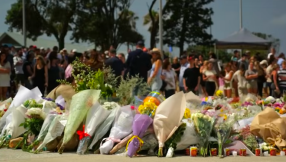The Times may not be the 'paper of record' that it undoubtedly was prior to Rupert Murdoch's takeover in 1981. But it is still widely regarded as the respectable newspaper to take and be seen with by ordinary people outside the beltway of those in the know about the inner workings of Fleet Street. In short, it has cachet.
That reputation has taken a knock today with the news that the Independent Press Standards Organisation (IPSO) has upheld a complaint from Tower Hamlets council about the accuracy of the paper's reporting on a foster care case last August. The Times, which today publishes the IPSO ruling on the notorious backwater of page 2, claimed that a 'white Christian child' had been placed with a 'Muslim' family who did not speak English, that the girl's necklace with a cross was removed and that she was stopped from eating bacon.
In fact, the family was English speaking and mixed race. The complaint from Tower Hamlets council specifically related to the third front page headline in one week, which read 'Judge rules child must leave Muslim foster home'. The council said it implied the judge had ruled against them when in fact the council has sought to remove the child from her foster home and place her with her grandmother, who is a Muslim.
The story – riddled with inaccuracies – was shoe-horned into an apparently Islamophobic narrative by the paper's chief investigative reporter Andrew Norfolk, who had previously won the Paul Foot award for investigative journalism for his work on the targeting, grooming and sexual exploitation of teenage girls in the north of England. Norfolk, who has defended the coverage, appears still to be on The Times's payroll. Whether he should remain so is down to him and his bosses.
The controversy is shocking but not surprising. The reality is that, of all Murdoch's British outlets, The Times is – contrary to appearances – the organ that most does Murdoch's bidding.
Yes, it can be nuanced, as it showed by surprisingly backing the Remain cause in the Brexit referendum. And it has some wonderful writers in a pluralistic stable, most notably Matthew Parris.
But huge stories in the rest of the press will be given the equivalent of tiny NIBs ('News in brief'), while apparently small stories will be blown up onto the front page to suit the proprietor's tastes. No, Murdoch does not directly interfere, as he used to with – say – the distinguished former editor Harold Evans despite assurances that he wouldn't. But as with all Murdoch outlets, the editors are well aware of what might please or anger the famous Australian. As a result, there appear to be some noticeably strange currents running through The Times's news reporting, when it comes to topics ranging from neoconservative wars (all 175 Murdoch editors at the time backed the 2003 invasion of Iraq) Israel, China, the Labour party, the US Democrats and, of course, Islam.
But this is not a game. Because of how important the newspaper is seen, stories like last August's have a real affect on people's lives.
Last month, I attended an evening hosted by the charity Muslim Aid in central London, with some 350 Muslims from across the country hearing a series of speeches from leading Islamic figures, including the heroic imam Mohammed Mahmoud who protected a suspected white terrorist last year at the Finsbury Park mosque.
The lead speaker was the journalist and broadcaster Mehdi Hasan, my old friend and co-author, who was applauded for a blistering speech about how Islamophobia in the media is worse in the UK even than in Donald Trump's US, where he is now based. And one of the stories he highlighted was that of The Times about the foster carers case. After the speech, there was a long queue of Muslims who wanted to thank him.
As Harun Khan, secretary general of the Muslim Council of Britain, has said: 'It is about time The Times was forced to apologise for promoting what was widely known to be an inaccurate, misleading and bigoted narrative about Muslims. We hope that this will mark a turning point in the tolerance The Times has shown for anti-Muslim bigotry in its coverage and commentary.'
And as Miqdaad Versi, who leads the MCB's work on media reporting on Islam, has said, the ruling was 'too little, too late'. He said: 'While Ipso's ruling on this shameful incidence of anti-Muslim reporting is welcome, their response thus far has been too little, too late.'
The Muslim Aid evening provided a fascinating insight into British Muslims' hopes, dreams and fears. And one of those biggest fears comes from insidious Islamophobia among seemingly respectable media outlets, chief among them The Times.
Ian Brunskill, the paper's assistant editor, appeared to go some way towards acknowledging this when he admitted the story and its reporting had cause 'enormous offence'. But he said the idea that the paper set out to cause offence was 'frankly absurd' and, contrary to some reports today, there has been no proper apology from the paper.
The Times may no longer be the paper of record. But it can still put the record straight.
Follow James Macintyre on Twitter @James_Macintyre













